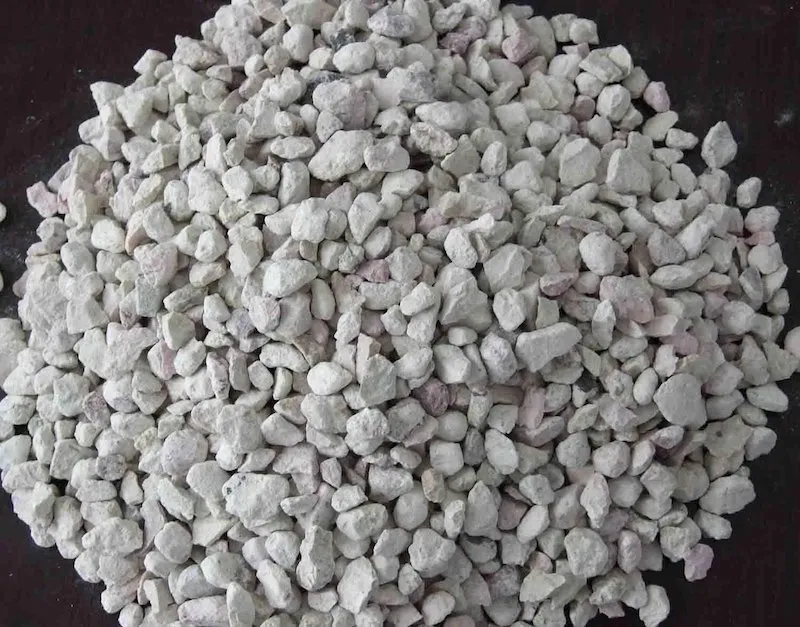Dr. Miguel Ángel Hernández Espinosa, coordinator of the Zeolites Research Department of the Institute of Sciences (ICUAP) of the Benemérita Autonomous University of Puebla (BUAP), in Mexico, has developed a solution based on plants and zeolite concentrates that - inClinical and laboratory tests - determined that it reduces and stabilizes glucose levels in people with type 2 diabetes.
Dr. Miguel Ángel Hernández explained that the oral administration of liquid zeolite for 25 or 28 days records a hypoglycemic effect.However, he warned that in patients with blood glucose values greater than 350 mg/dl, treatment with liquid zeolite is not recommended.
Zeolites are rocks of mineral origin, of porous composition, capable of hydrating and dehydrating reversibly, in addition to absorbing heavy metals, this quality is commonly used for the treatment of drinking and contaminated water, but its applications are not reduced to this,It is also used in the petrochemical, atomic, biomedical and agricultural industry, among others.
In Mexico, there are a large number of natural Zeolitas deposits, about 30 at least, of these a dozen have been identified by Dr. Hernández Espinosa.With more than 35 years of studying them, their contributions on the applications of the Zeolite are varied, one of them is the reduction of blood glucose levels, in conditions such as type 2 diabetes.
The liquid zeolite, explains Hernández Espinosa, is a compound created in the ICUAP Zeolitas Laboratory with nanometric procedures to achieve concentrates of 29 plants with hypoglycemic properties such as avocado, oliveimportant.
"Zeolite is used as a molecular mesh to retain the 29 compounds obtained through extracts, of which six are enriched with the zeolite through nanotechnology, because they are the ones that have the greatest contribution for the decrease in blood sugar", he explains in an interview for the Conacyt information agency, Dr. Hernández Espinosa.
This liquid compound has already been experimentally tested, first with laboratory animals and subsequently with patients;Even Dr. Hernández Espinosa himself recognizes that he has managed to stabilize his glucose levels with this compound, without having side effects.
"It has no side effects and adding certain care its effectiveness is very high, in addition to that it is very economical, we could say that it costs more shipment."
Hernández Espinosa clarified that it is not a medication, but a adjuvant with active phases that is not contrasted to the use of other medications.
Dr. Hernández Espinosa warned that the marketed liquid zeolite without control in Internet sites, in addition to not being effective, its consumption implies health risks, because it contains potentially toxic substances.
When analyzing in the ICUAP laboratory, the Zeolite marketed on the Internet, the researcher found that it is only powdered and mixed with water, so its effect, in the best of cases, acts only as a pH regulator.
“We offer a solution enriched with zeolite and organic compounds, using nanotechnology, but what they sell on the Internet is only ore powder with water and that implies risks because some may have lead or mercury, and if the studies ofrelevant laboratory runs the risk of getting sick or intoxicating the patient, ”he warned.
To detect the right mineral, the BUAP specialist analyzes the properties and composition of a variety of zeolites that can be synthetic, natural and others, those cataloged as "standards", which are very expensive - a kilo reaches 30 thousand pesos.
The mineral is subjected to evidenceIn a gas chromatograph to record the composition, retention and level of ion exchange, and through an interface qualitative and quantitative results on the mineral are obtained.
Once the zeolite and with the active phases of the solution, such as ursolic, oleanolic, stigmasterol and Lupeol, Dr. Hernández Espinosa managed to increase insulin from beta cells, so that he determined that these actions were inhibitors of the alpha-Glucosidase.This is how a compound to treat type 2 diabetes and its possible complications in renal aspects and amputations was achieved.
“We have contacted us chiefs of hospital units in Puebla and San Martín Texmelucan to request our compounds.We have approved preclinical studies and doses, as well as protocols.The patent application is not yet issued but will be done.Now the important thing is to help people, that is what gives us the most, the rest is like a scale, little by little it will take career. ”(Source: CONACYT/DICYT)


